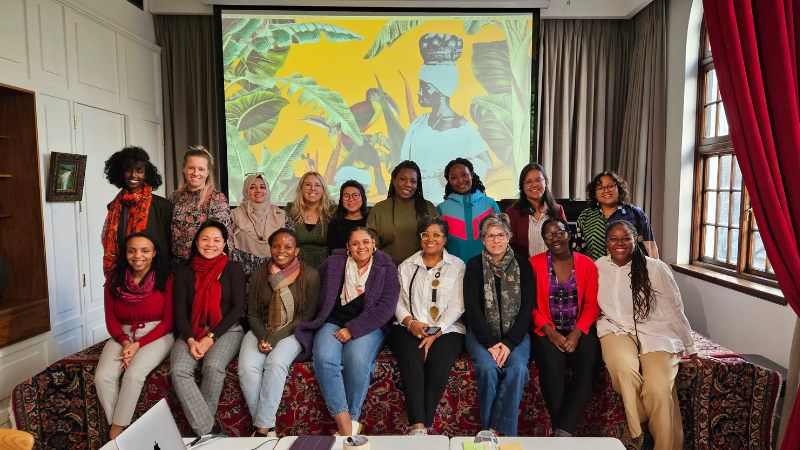The steering committee of the Global Alliance for Tax Justice (GATJ)’s Tax and Gender Working Group (TGWG) and key partners are meeting in Cape Town (South Africa) from 10 to 12 July to reflect on *the changes that have occurred within the group and in the broader external context since the last strategic convening in London 2018.
“We are honoured with the engagement of our steering committee members and partners, without whom this work in tax and gender would not be possible. It’s been the most inspiring experience to bring this diverse group together to celebrate how far we have come since our first convening in 2017, and reflect on the evolving context of the tax and gender work at the national, regional and global levels,” said policy advocacy and campaigns coordinator at GATJ and co-chair of the TGWG, Âurea Mouzinho.
Current and former group co-chairs, members of the GATJ regional networks and representatives from key TGWG partner organisations working on feminist fiscal justice are collectively mapping ways in which the group has positioned itself in the changing landscapes and what considerations should be taken forward.
“It’s important to greet, meet and feel the energy of the people that we were missing because of the pandemic. Also, this space has evolved a lot since the last time we met and is still evolving, like the world issues do. Where do we want to see us standing strong together in this ever changing world? I want us to leave this place with lots of energy, hope and motivation to work toward tax justice and gender equality. Critical discussion and challenging our thoughts can only be possible when we are meeting people in flesh and can sense their human emotions. I believe that is the most important driving force for people,” added co-chair of TGWG Ommey Nahida, senior policy specialist for economic justice at Christian Aid.
Co-chair Grace Namugambe, program officer in charge of financing for development at SEATINI Uganda, also highlighted the importance of being able to not only work together on strategies and share knowledge, but also to strengthen personal relationships. “Through online meetings we don’t get the chance to really know each other since we don’t have the time or the focus for too long, we can’t have a real human connection. We’re getting a chance to share our different knowledge and experiences, but also to revive friendships, build new ones, and move forward stronger together as a group, to keep it active and build momentum around tax and gender issues,” she stated.
This meeting is the starting point of a strategy review process which will include consultations with the wider TGWG membership in the upcoming months. At the end of this process, we expect to have a new 2024-2028 TGWG advocacy strategy with propositions to strengthen the working group’s advocacy and campaigning for gender-transformative tax and fiscal policies.
About the Tax and Gender Working Group
The TGWG was established by the GATJ in 2016 as a dedicated platform for its members and committed partners to directly engage in campaign and policy advocacy efforts on tax and gender issues. Its primary objective was to enhance the global integration of organisations working on tax and gender justice, women’s rights organisations (WROs), global trade unions, international non-governmental organisations (INGOs), and civil society organisations (CSOs).
Over the past seven years, the TGWG has collectively coordinated seven editions of the Global Days of Actions on Tax Justice for Women’s Rights, as well as the publication of Framing Feminist Taxation volume 1 and volume 2, which provide guidance and recommendations for policy-making and advocacy that can influence and change our current economic and tax systems for a feminist future.
Other milestones of the working group also include the first global convening on Tax Justice for Women’s Rights in Bogotá, in 2017; the Bogotá Declaration on Tax Justice for Women’s Rights; and one edition of a Global Conference on Tax Justice and Gender Equality. In addition to these, working group members have collaborated on a vast array of opinion pieces, policy briefs, workshops, trainings and actively participated in global, regional and national policy spaces amongst which the Commission on the Status of Women, the High Level Political Forum of Sustainable Development (HPLF), and the IMF/World Bank Annual and Spring Meetings.


